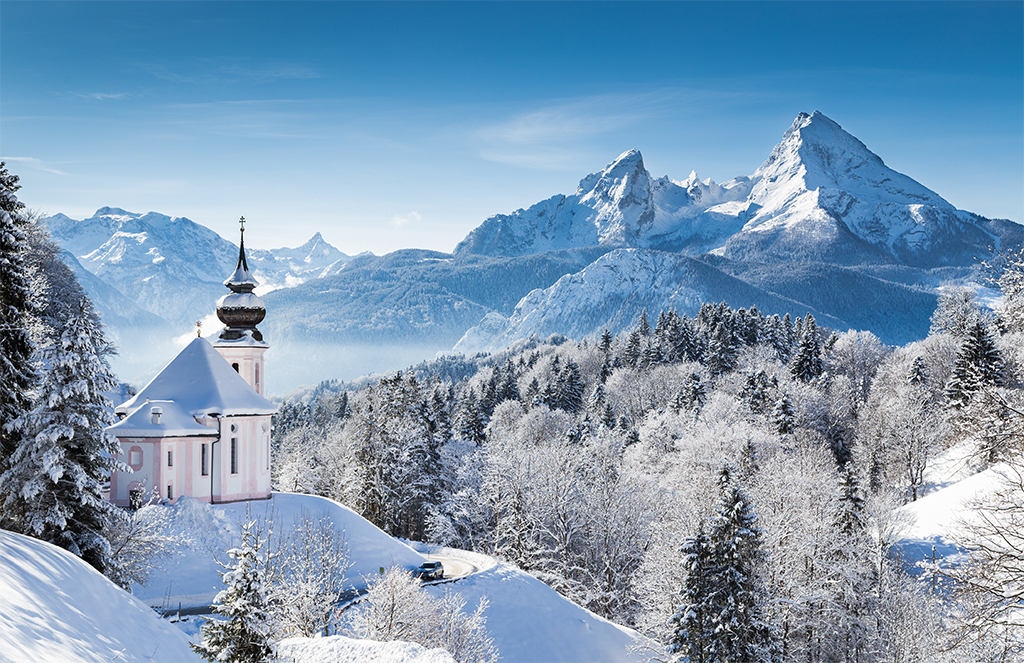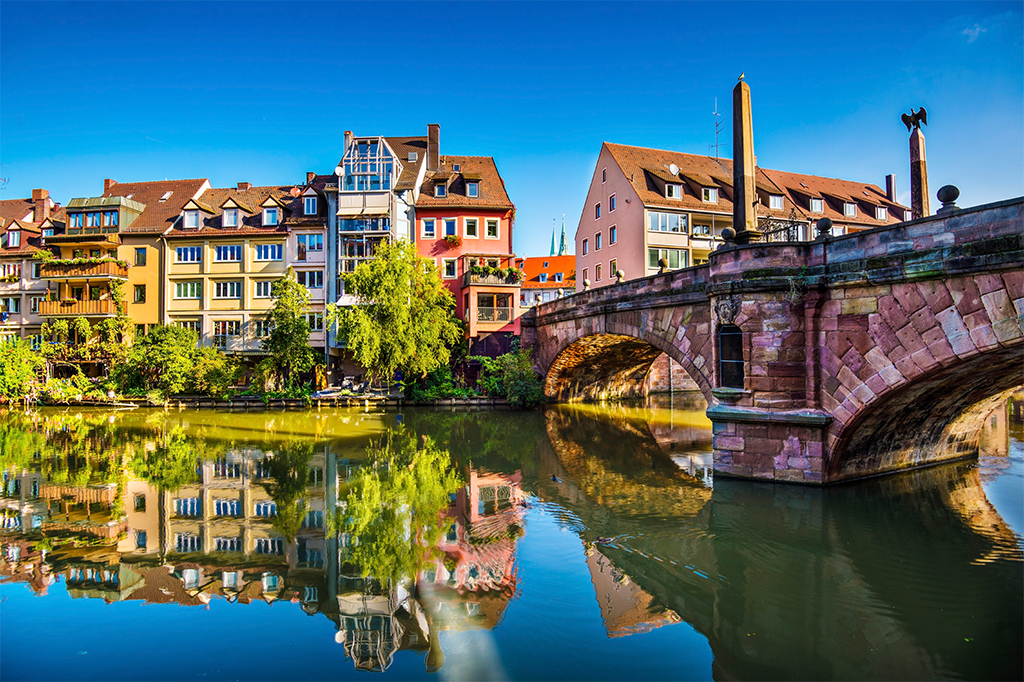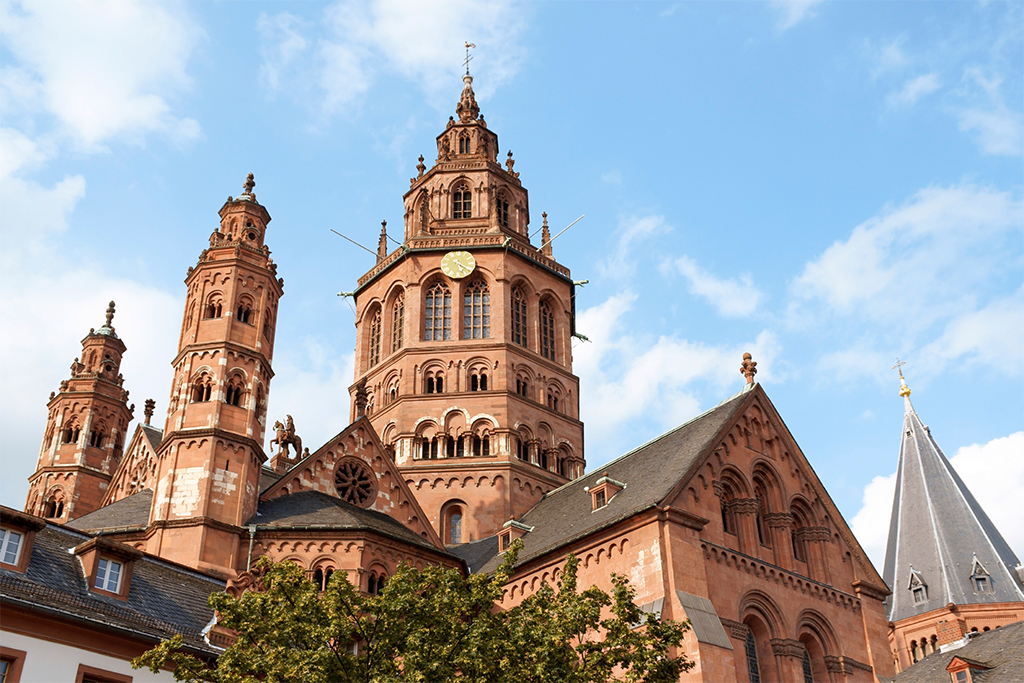Facts about Germany,That you need to know.
Germany (German, officially the Federal Republic of Germany, is a country in Central and Western Europe, lying between the Baltic and North Seas to the north and the Alps, Lake Constance and the High Rhine to the south. It borders Denmark to the north, Poland and the Czech Republic to the east, Austria and Switzerland to the south, France to the southwest, and Luxembourg, Belgium and the Netherlands to the west.
Germany includes 16 constituent states, covers an area of 357,386 square kilometres (137,988 sq mi), and has a largely temperate seasonal climate. With 83 million inhabitants, it is the second most populous state of Europe after Russia, the most populous state lying entirely in Europe, as well as the most populous member state of the European Union. Germany is a very decentralised country. Its capital and largest metropolis is Berlin, while Frankfurt serves as its financial capital and has the country's busiest airport. Germany's largest urban area is the Ruhr, with its main centres of Dortmund and Essen. The country's other major cities are Hamburg, Munich, Cologne, Stuttgart, Düsseldorf, Leipzig, Bremen, Dresden, Hanover, and Nuremberg.
Various Germanic tribes have inhabited the northern parts of modern Germany since classical antiquity. A region named Germania was documented before AD 100. During the Migration Period, the Germanic tribes expanded southward. Beginning in the 10th century,
German territories formed a central part of the Holy Roman Empire.During the 16th century, northern German regions became the centre of the Protestant Reformation. After the collapse of the Holy Roman Empire, the German Confederation was formed in 1815. The German revolutions of 1848–49 resulted in the Frankfurt Parliament establishing major democratic rights.
In 1871, Germany became a nation state when most of the German states unified (except Switzerland and Austria) into the Prussian-dominated German Empire. After World War I and the revolution of 1918–19, the Empire was replaced by the parliamentary Weimar Republic. The Nazi seizure of power in 1933 led to the establishment of a dictatorship, the annexation of Austria, World War II, and the Holocaust. After the end of World War II in Europe and a period of Allied occupation, Austria was re-established as an independent country and two new German states were founded: West Germany, formed from the American, British, and French occupation zones, and East Germany, formed from the Soviet occupation zone. About a quarter of Germany's pre-war territory was annexed by Poland and the Soviet Union, leading to the expulsion of Germans. Following the Revolutions of 1989 that ended communist rule in Central and Eastern Europe, the country was reunified on 3 October 1990.
Today, the sovereign state of Germany is a federal parliamentary republic led by a chancellor. It is a great power with a strong economy; it has the world's fourth-largest economy by nominal GDP, and the fifth-largest by PPP. As a global leader in several industrial and technological sectors, it is both the world's third-largest exporter and importer of goods. As a highly developed country with a very high standard of living, it upholds a social security and universal health care system, environmental protection, and a tuition-free university education.
The Federal Republic of Germany was a founding member of the European Economic Community in 1957 and the European Union in 1993. It is part of the Schengen Area and became a co-founder of the Eurozone in 1999. Germany is a member of the United Nations, NATO, the G7, the G20, and the OECD. Known for its rich cultural history, Germany has continuously been the home of influential and successful artists, philosophers, writers, musicians, film people, sportspeople, entrepreneurs, scientists, engineers, and inventors. Germany has many World Heritage sites and is among the top tourism destinations in the world.
Here are the most interesting facts about Germany…
1. Germany is one of the most densely populated countries in Europe.
The country has a staggering population size of 80,636,124 people, which means even though Germany is a rather large country, there are actually 231 people per square kilometre!
2. One third of Germany is still covered in Forest and Woodland
Despite the population density, a good proportion of Germany is actually still covered in foliage, and boy is it spectacular. If you’re a fan of the Brother’s Grimm fairy tales, you might just want to pay a visit to the beautiful Black Forest… the setting of many of their stories.
3. Berlin is nine times bigger than Paris and has more bridges than Venice
Did you realise how big Berlin actually is? Dating back to the 13th century, the city spans a whopping 891.8 km², which gives plenty of room for the 1650 bridges it houses.
4. During JFK’s famous declaration of “Ich bin ein Berliner” he actually likened himself to a jam doughnut.
Yes, you read that right… What JFK should have said is “Ich bin Berliner” meaning “I am a citizen of Berlin”, as a Berliner is actually a type of jelly donut made in Berlin, so “Ich bin ein Berliner” can actually be translated to “I am a jam doughnut”.
5. Germany’s Capital City has shifted 7 times!
Now here’s one to remember for the pub quiz! Germany’s capital has shifted from Aachen during the Carolingian Empire to Regensburg, Frankfurt-am-Main, Nuremberg, Berlin, Weimar (unofficially, during unrest in Berlin), Bonn and East Berlin, and, since 1990, Berlin again!
6. Germany is sometimes known as the land of poets and thinkers
German writers and have won 13 Nobel Prizes and Germany was home to world-renowned writers such as Friedrich Schiller, E.T.A. Hoffmann, Günter Grass and Maria Stona.
7. Germany is Europe’s second largest beer consumer
Just behind the Czech Republic, the German’s are known to consume a fair amount of ‘liquid gold’. However, given the Bavarian’s consider beer to be a basic food and drink an average of 150 litres per person per year, so we think they’re giving the Czech’s a good run for their money.
8. The longest word published in the German language is Donaudampfschifffahrtselektrizitätenhauptbetriebswerkbauunterbeamtengesellschaft
This loosely translates to Danube steamboat shipping electricity main engine facility building sub clerk association. It is a law delegating beef label monitoring, was removed from the German language in 2014.
9. The German football team is the second most successful football team in the world
The beautiful game is a British sport and a hard fought rivalry in the football world. We have to hand it to Germany on this one, falling just behind Brazil, winning four world cups and three European championships, so they certainly can play us at our own game.
10. The first book to ever be printed was the Bible by Johannes Gutenberg in the 1450s in Germany
The first mass produced printed book was the Latin Bible and was originally published in February 23, 1455 in Mainz.
You might be interested to know about!!
- Germany has a population of 81 million people.
- One-third of Germany is still covered in forests and woodlands.
- Germany is a member of the European Union.
- 65% of the highways in Germany (Autobahn) have no speed limit.
- University is free for everyone (even non-Germans).
- There are over 2100 castles in Germany.
- There are over 1,500 different beers in Germany.
- Germany is the seventh-largest country in Europe. Covering an area of 137,847 square miles, of which 34,836 square miles is covered by land and 3,011 square miles contains water.
- Berlin has the largest train station in Europe.
- Berlin is 9 times bigger than Paris and has more bridges than Venice.
- Germany is composed of sixteen states. The states have their own constitution and are largely autonomous in regard to their internal organization. At the municipal level, Germany is divided into 403 districts (Kreise), of which 301 are rural districts and 102 urban districts. Bavaria is the largest state.
- Germany is one of the most densely populated countries in the world.
- Germany shares borders with nine other countries. Denmark, Poland, the Czech Republic, Austria, Switzerland, France, Belgium, Luxembourg and the Netherlands.
- Germany is the EU’s largest economy. With a gross domestic product (GDP) of 3.73 trillion USD, and lies fourth place in the world behind the US, China and Japan.
- Germany is one of the world’s largest car producers. Selling 5.9 million cars in 2011. VW’s Golf is one of the best selling cars of all time: in 2012 it year it sold more than 430,000 Golfs around Europe (125,000 ahead of its nearest rival). In 2013, the top-selling car brands in Germany were Volkswagen, Mercedes. Audi and BMW.
- The following cities have all at one time or another been capitals of Germany: Aachen, Regensburg, Frankfurt-am-Main, Nuremberg, Berlin, Weimar, Bonn (and East Berlin), and, since 1990, Berlin again.
- The first printed book was in German.
- Germany is one of the world’s leading book nations. Publishing around 94,000 titles every year.
- The first magazine ever seen was launched in 1663 in Germany.
- Germany was the first country in the world to adopt Daylight saving time – DST, also known as summer time. This occured in 1916, in the midst of WWI.
- When JFK visited Berlin, he infamously said “Ich bin ein Berliner,” which also translates to “I am a jelly donut.”
- German is the most widely taught third language across the world.
- German remains the language with the most native speakers in Europe.
- Germany, Switzerland, Austria, Luxembourg and Liechtenstein have German as the official language.
- Donaudampfschifffahrtselektriz
itätenhauptbetriebswerkbauunte rbeamtengesellschaft is the longest word to be published. It is 79 letters long. - There are thirty-five dialects of the German language.
- There are over 300 different kinds of bread in Germany.
- There are over 1,000 kinds of sausages in Germany.
- Beer is considered a food in Bavaria officially.
- Smoking is banned in public places but drinking alcohol is still legal.
- After the Irish, the Germans are those consume the most beer, making Germany the second largest consumer of Beer.
- The biggest Beer Festival in the world is of course the Oktoberfest in Munich, Bavaria, where the size of the beer glass is not 500ml but a whole liter!
- To get ONE beer in Germany, you show your thumb. To show your first finger means that you want 2 beers: one with the thumb, and one with the finger.
- There are more football (soccer for the North Americans) fan clubs in Germany than anywhere else in the world.
- Germany has (once) lost a penalty shootout in a major football competition. It was in 1976 when the then West Germany lost a shootout 5-3 in in the European Championships against Czechoslovakia. On the four other occasions the Germans
have been involved in one, they won. - The Christmas tree (Tannenbaum) tradition came from Germany.
- Germany has over 400 zoos, the most in the world.
- Chancellor Angela Merkel has a Barbie doll made after her.
- Toilet paper in Germany has the softness and consistency of paper towels.
- Most taxis in Germany are Mercedes.
- Holocaust denial is either implicitly or explicitly a crime in 17 countries, including Germany and Austria.
- The world’s narrowest street is in Reutlingen. It is called Spreuerhofstrasse and is 31 cm (one foot) wide at its narrowest point.
- The Chancellor’s office in Berlin is known locally as as the “washing machine”.
- Germany is a leader in climate and energy policies – it made a decision in 2011 to decommission all nuclear power stations (then producing around 18 percent of electricity consumed) by 2022 and to replace them with renewable energies and new storage for green electricity.
- In Germany there’s no punishment for a prisoner who tries to escape from jail, because it is a basic human instinct to be free.
You might be interested to read also:Quick links















0 Comments:
Post a Comment